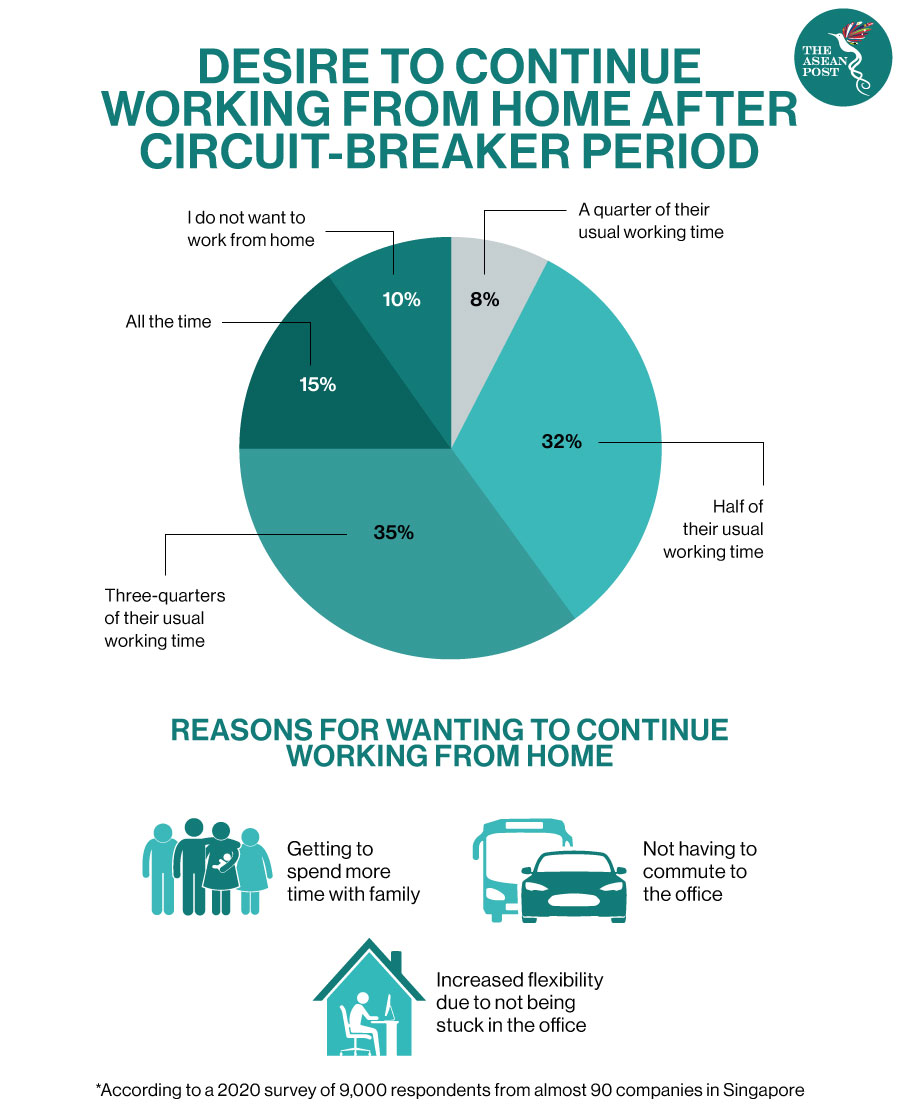For anyone who has made that wholesale leap into work-from-home (WFH), it feels like forever since our last 9-to-5 office routine.
From scrambling to convert whatever spaces we could find into an office a year ago – whether a dining table, a sofa, or even the floor – most of us today have settled into a comfortable pattern.
Sure, there were myriad teething issues when the boundaries separating our personal and professional lives melted, turning some homes into a sideshow of horrors for parents with screaming kids.
Cabin fever and the lack of human interaction worsened disconnectedness. Self-discipline and motivation waxed and waned, making self-doubt seem like the only emotion in abundant supply on some days.
But fast forward to today, that nightmare has largely receded into the rear-view mirror.
By and large, as children returned to schools, as communication tools like Zoom improved reach and reliability, and as we gained more degrees of freedoms with restrictions on gatherings, events and other economic activities easing when Singapore shifted into subsequent phases of our reopening, the outlook for WFH started to look pretty good.
Research has shown workers are more productive, more engaged and more loyal to their firms overall.

The WFH Pandemic Boon
“Nothing can happen for decades and then decades can happen in weeks,” reads a quote famed New York University Professor Scott Galloway shared in his latest book, Post Corona: From Crisis to Opportunity.
He describes what a radical transformation COVID-19 has wrought on the world of work, in forcing firms to jettison old mindsets to inevitable change.
Case in point: Flexible work arrangements, once vehemently resisted by controlling bosses and stuffy corporate norms, became the standard overnight.
The pandemic has also brought into sharper focus employee welfare. Goldman Sachs be darned; companies paid more attention to helping workers cope through this unprecedented disruption. Managers were expected to step up to demonstrate leadership.
We may have had initial doubts about this forced WFH experiment but many have since warmly welcomed it, all things considered. In fact, three in four now working from home say they do not wish to return, according to a Straits Times survey last week.
Worries About Returning To Work
But the pendulum may be swinging back to the other side. With the Singapore Government giving the green light for more to return to the office, firms are cranking up old engines and preparing to welcome back larger groups of workers come Monday (5 April).
Some forewarning was given in January when multi-ministry taskforce co-chair and Education Minister Lawrence Wong highlighted that 100 percent work from home would not be doable in the long term, citing the benefits of face-to-face interactions for collaboration.
Yet, when I asked EngageRocket CEO Leong Chee Tung and HR strategist Adrian Tan how they felt about the prospects of heading back to the workplace last October on CNA’s Heart of the Matter podcast, their answers were telling.
“I would rather not,” Tan said.
“(I’m) apprehensive but hopeful for new gains,” said Leong.
Last year, when Singapore was striving to flatten the COVID curve, many workers were understandably keen to minimise external exposure to avoid catching the virus and spreading it to seniors, kids and other loved ones at home.
So, building managers and employers made sure spaces were sufficiently disinfected, work stations well distanced and offices conform to health and safety standards.
After all, workplaces were worryingly a source of outbreaks last summer when Europe reopened offices. In Singapore, a coronavirus cluster formed around a local construction office barely two months ago.
But given close-to-zero community cases today, the concerns workers may have over returning to the office may be even more intangible and personal.
Now we loathe the bane of rush-hour commute, the loss of newfound autonomy and the painful practicalities of having to wear a mask all day while at the office.
We have invested in home offices, better internet connections and so much more to make WFH work.
WFH has also given workers more time on their hands to spend around family, familial chores and fresh air, while juggling work.
Must we really give it all back? – CNA
Related Articles:
